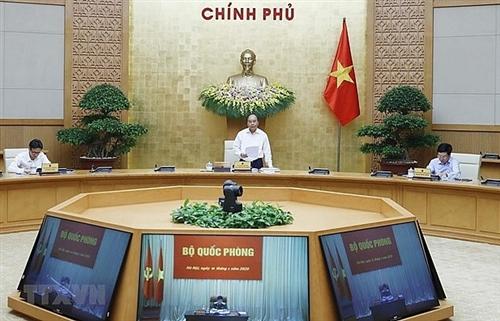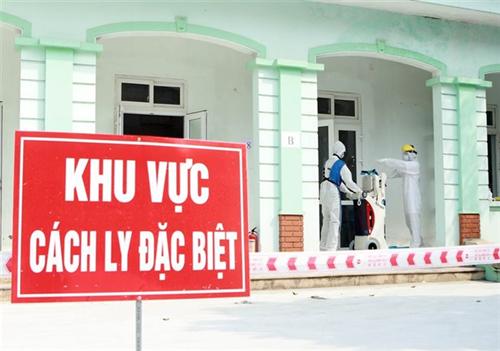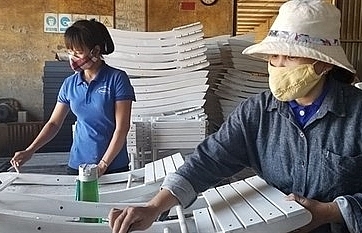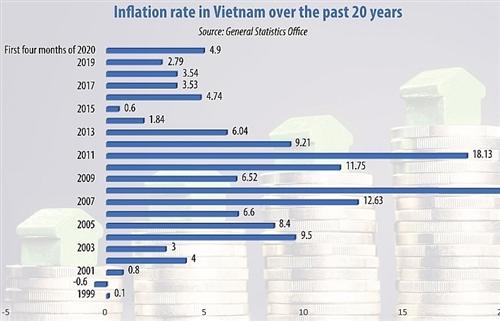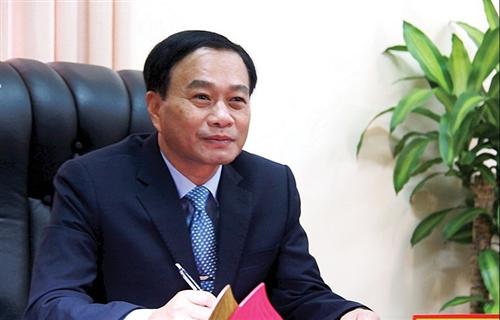Conficting policies, land issues and disease hinder equitisation of SOEs
Conficting policies, land issues and disease hinder equitisation of SOEs
The equitisation of State-owned enterprises (SOEs) was being hindered by troublesome policies, lack of transparency in land management and the recent devastation inflicted by the COVID-19 pandemic, experts said. 
Among the list of 93 SOEs required to be equitised by Prime Minister Nguyen Xuan Phuc this year, only two had been given the green light from the Government for their equitisation plans.
Some experts believe the equitisation progress would fall short of the plan due to overlapping policies, resulting in conflicting legal documents.
For example, the concept of a State-owned enterprise defined in the 2014 Enterprise Law was not consistent with Resolution No 12-NQ/TW dated June 3, 2017 on restructuring, renewing and improving the efficiency of SOEs.
The term “State capital invested in enterprises” was also defined differently in the Law on Management and Use of State Capital Invested in Production and Business at Enterprises (Law 67/2014/QH13), the Law on Public Investment, the Bidding Law, the Law on State Budget and the Construction Law.
These inconsistencies had led to difficulties in determining the responsibilities, sequences and procedures applied for the equitisation process.
Ha Noi was due to equitise 13 SOEs this year but Vice Chairman of the Ha Noi People's Committee Nguyen Doan Toan admitted that the process had fallen short of schedule.
Previously, SOEs in Ha Noi executed the equitisation process in accordance with the Government's Decree No 59/2011/ND-CP. But then the Government issued Decree No 126/2017/ND-CP replacing Decree 59, Toan said.
The new decree had stricter directions so the equitisation process needed more steps and time, he said.
According to the Ministry of Finance, one of the reasons for the slow process was that the size of Viet Nam’s stock market was still not large enough to absorb all the capital generated by the equitisation process in a short space of time.
“Due to the severe damage inflicted by the COVID-19 pandemic, all production and business activities have been delayed, badly affecting the stock market, so it is impossible to complete the equitisation plan assigned this year by the Prime Minister for the 93 SOEs,” said Dang Quyet Tien, deputy director of the Department of Enterprise Finance under the Ministry of Finance.
“The plan is unlikely to be completed in 2020 as most companies, especially large-cap firms, have failed to finish their business evaluations regarding the huge amount of land under their authority,” said Tien.
“Targeted SOEs are mostly large corporations with complex financial systems and also giant land owners. Land handling prior to the equitisation process is one of the biggest problems firms are facing now,” he said.
Land issues
Due to issues related to land use rights, Viet Nam National Coal and Minerals Group (Vinacomin or TKV) had postponed its equitisation till the end of 2020, or even to 2021, said a company leader.
“TKV is managing a total of 400 premises over 32 provinces and cities nationwide. Therefore, it takes a long time to complete the enterprise valuation process and get approval for the equitisation plan,” the leader said.
There's a similar story at The Vietnam Bank for Agriculture and Rural Development (Agribank). The bank has total assets of VND1.4 quadrillion (US$60 billion), ranking second after BIDV in the whole banking system.
Agribank has up to 294 real estate basements with a total area of 2.6 million square metres across the country, with diverse land sources and incomplete legal records.
An Agribank representative said the bank was having difficulty determining land use rights in some localities, delaying the equitisation process. Outlining several areas, Agribank has sent a petition to State Bank of Viet Nam to submit to the Prime Minister, asking for a specific mechanism for the bank’s equitisation plan.
According to KB Securities Company (KBSV), the impact of the COVID-19 outbreak on the stock market was expected to be much greater than that of the SARS epidemic in 2003.
“COVID-19 has not only had a great impact on domestic economic growth and profit growth of listed companies, but also affected the equitisation and divestment plans of enterprises,” KBSV said.
According to the General Statistics Office, in the first four months of this year, 22,700 enterprises temporarily suspended business, up 33.6 per cent over the same period last year. Nearly 14,000 businesses ceased operations pending dissolution procedures during that period.








